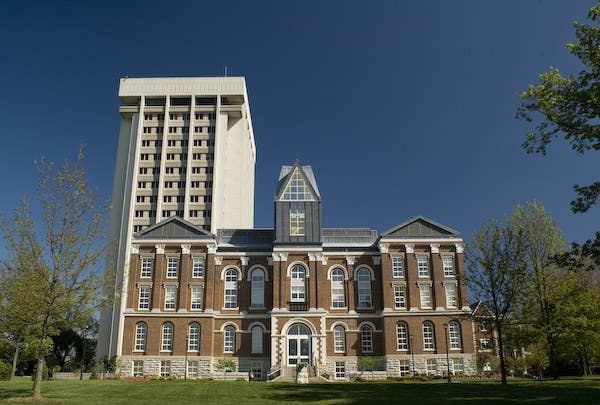
In an unprecedented move to keep the contents of a faculty sexual assault investigation secret, the University of Kentucky intends to sue its own student newspaper.
In February, two months after being charged with sexual assault and harassment against two students in his department, James Harwood resigned from his position as an associate professor of entomology without stated cause.
According to 122 pages of investigation documents that were leaked to the student paper, the independently run Kentucky Kernel, Harwood violated school sexual assault policies by “fondling” the two students at two conferences in 2012 and 2013. He was also found to have sexually harassed the students in each case. Three other students did not file formal complaints but testified to the investigator about other alleged incidents of sexual misconduct as recently as 2015.
The university would not confirm the authenticity of the documents, which the Kernel reported are signed by the university’s deputy Title IX coordinator, Martha Alexander.
The investigation, which concluded in December, was initially kept secret. The investigator recommended that Harwood’s “employment with the University be terminated and his tenure as a faculty member be revoked.” But Harwood’s subsequent agreement with the university allowed him to resign instead of going through the lengthy process of a disciplinary hearing. This also means that the investigation won’t be disclosed if he applies to new jobs.
Following Harwood's resignation, a representative for the two complainants approached the student paper about the case, and the paper immediately filed a public-records request with the university. The school initially provided Kernel with Harwood’s settlement documents, but refused to disclose the full investigation. The documents they did release provided no mention of charges of sexual assault.
Kernel took the case to Kentucky’s attorney general, Andy Beshear, who on Aug. 8 ruled that the university must release all of the documents — with names redacted — to the school paper. Instead, the next day, university President Eli Capilouto sent a campus-wide email (later republished as a blog post with the title “The Tension of Competing Values”) explaining that the university intends to sue the independent student paper to block the release of the documents.
After that, an anonymous source involved in the case provided Kernel with the full investigation documents. To date, the paper has published 10 stories about the case. The most recent, published on Monday, revealed that Harwood was also investigated for fabricating data on a $50,000 international project on insect research. That misconduct investigation was completed, but never fully resolved because of Harwood’s resignation.

“It’s incredibly disappointing to find out that your university is protecting someone like this, or doesn’t have the best interests of its students in mind,” Marjorie Kirk, Kernel’s current editor-in-chief and a senior, told BuzzFeed News. “We believe we are in the right and we believe that the judge would see it that way.”
The university stands by its decision to keep the investigation documents confidential, saying it sets an important precedent for privacy.
“Our University cannot — and should not — decide when it is appropriate to violate a victim-survivor’s privacy — and a victim-survivor’s trust — by providing information to the Office of the Attorney General, the Kernel (our student newspaper), or any other entity,” university spokesman Jay Blanton told BuzzFeed News by email. “That is why it is essential that this dispute be settled in a court of law.”
The two complainants, through an unnamed representative, told BuzzFeed News by email that this explanation is “flimsy and suspect.”
The women “were surprised and outraged,” they added, that the school was trying to block release of the documents. “We care most about preventing Harwood from leaving for another university where he could repeat these behaviors,” they wrote.
In a response to the paper, Harwood denied the charges brought against him, citing “family medical reasons” as the cause for his resignation. He will still get his $109,900 annual salary until the end of August, and he will receive health benefits from the university through Dec. 31 or until he receives a new job elsewhere.
Harwood did not respond to a request for comment from BuzzFeed News.
The university’s decision to sue the paper over the investigation documents is a reflection of its stance on transparency, Kirk said.
“If they continue to go down this rabbit hole and follow this lawsuit,” Kirk said, “they’re distancing themselves further and further from what I think is the right path, which I think is being transparent and open.”
CORRECTION
The investigation documents were given to the Kernel by an anonymous source involved with the case. A previous version of this story stated that the documents were given by the complainants.
